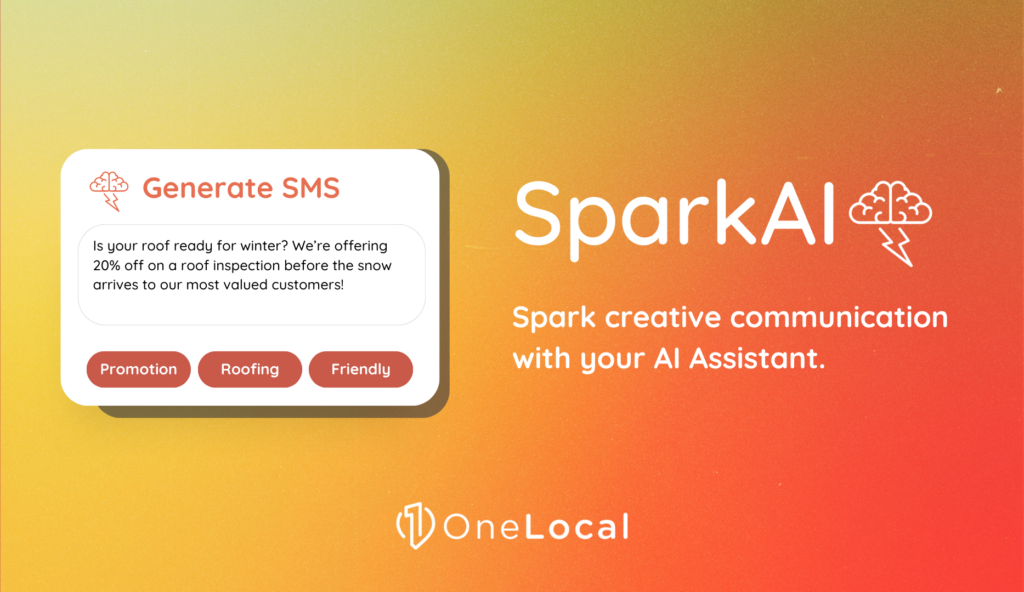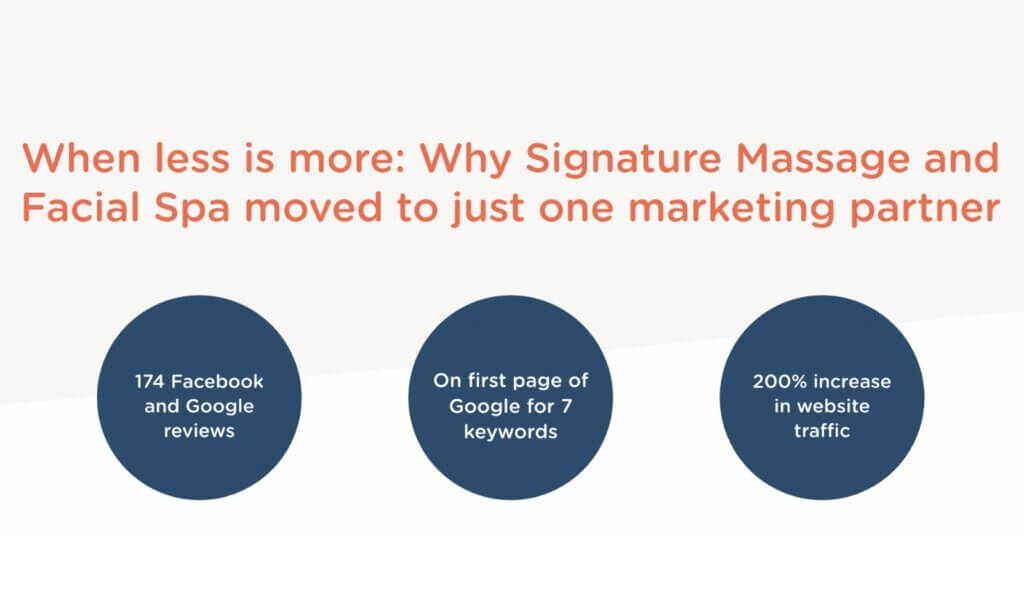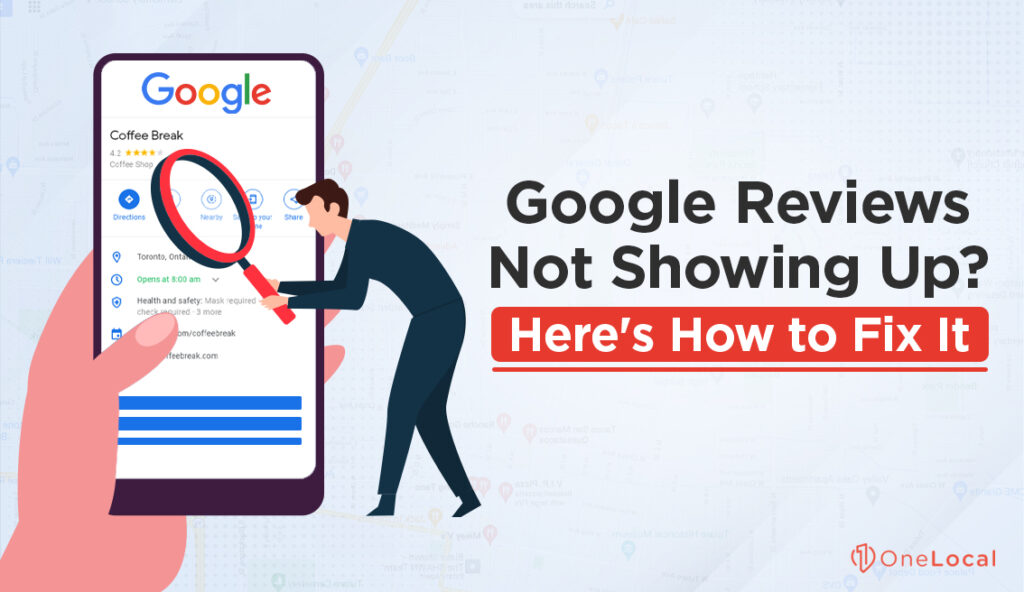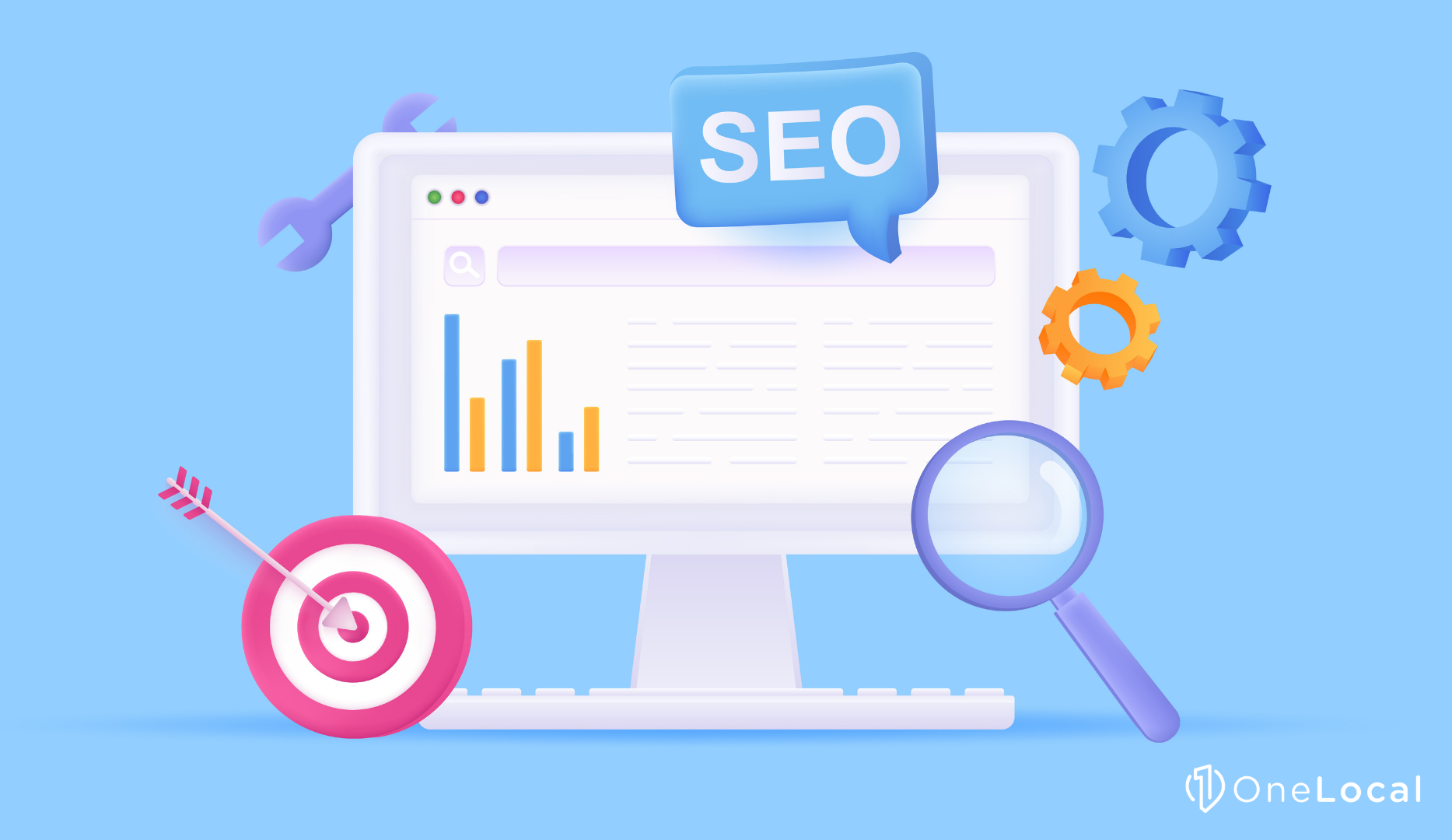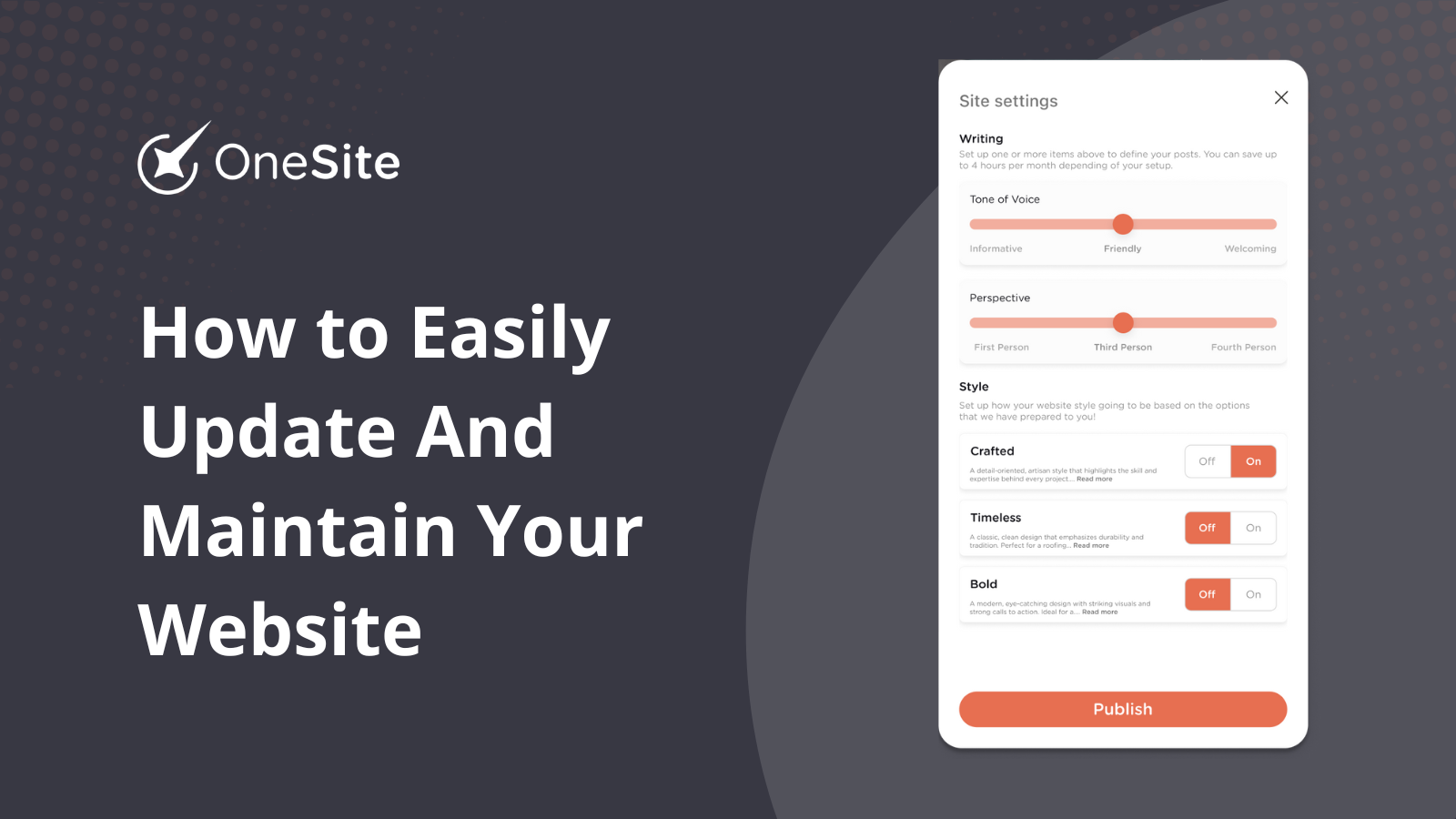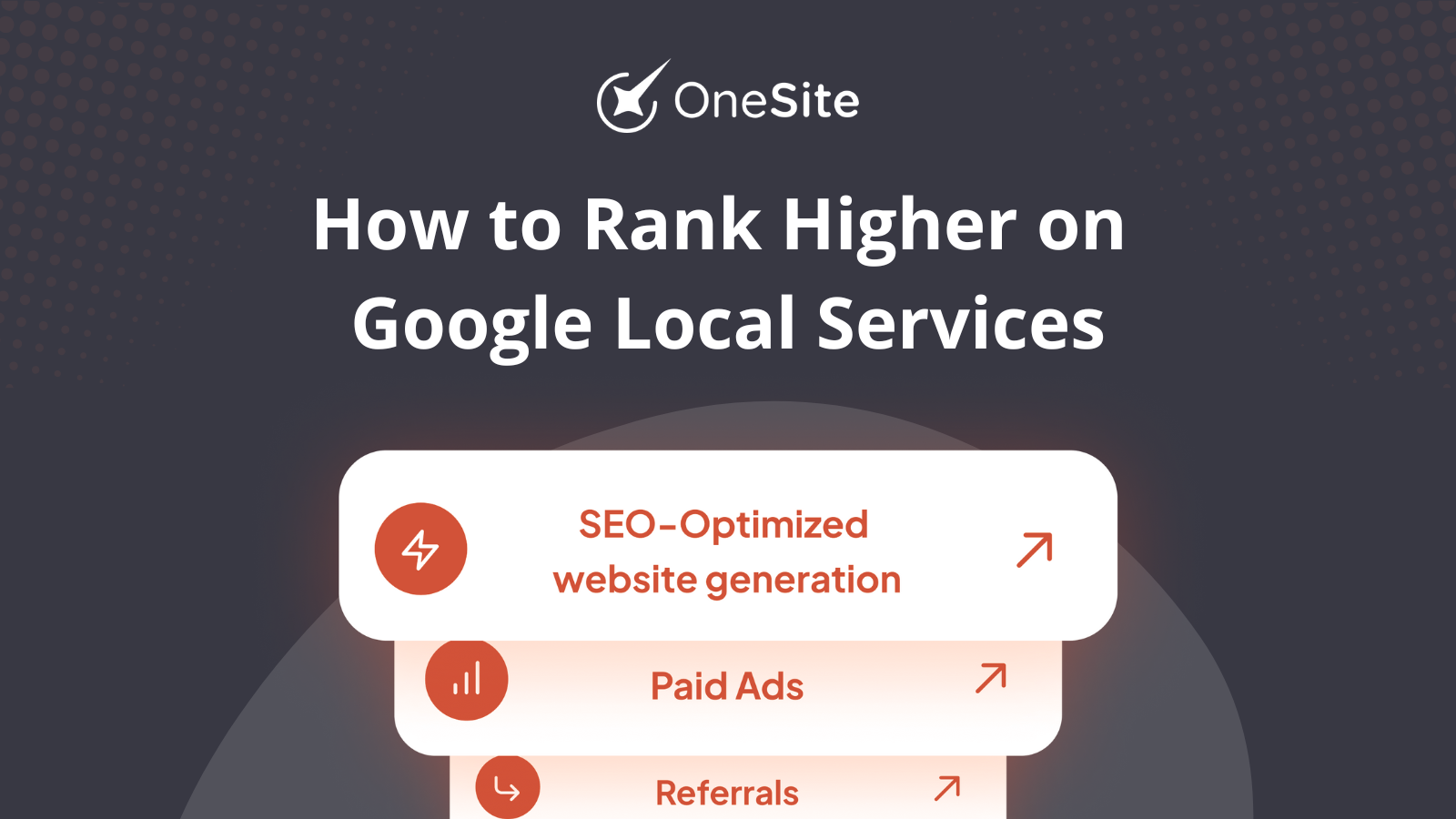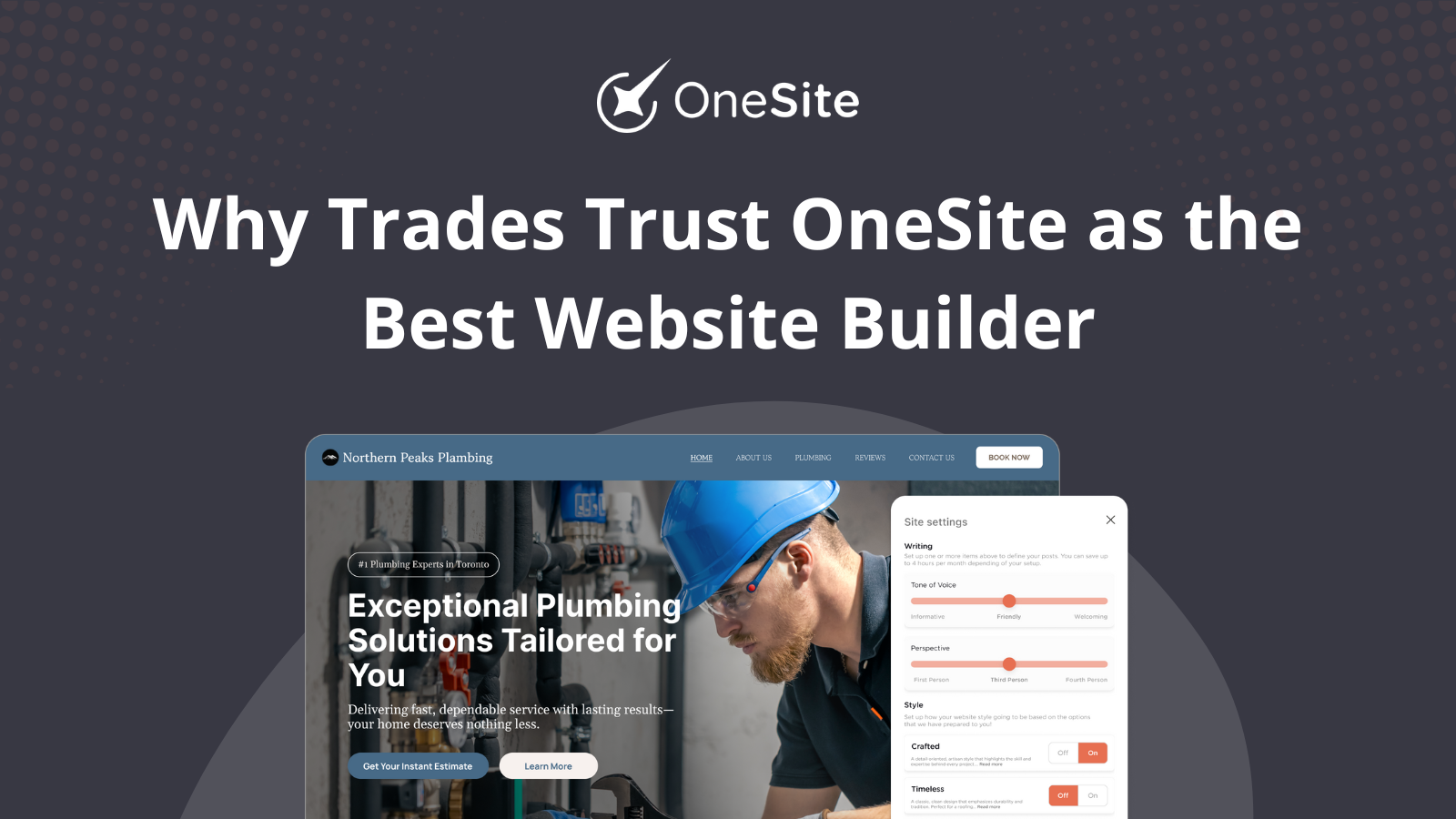As previously posted on SearchEngine Journal on April 27, 2022. Authored by OneLocal’s in-house SEO expert, Jeff Riddall.

When we hear the term local SEO, we often think about the strategies and tactics that local retail or B2C businesses use to optimize their online visibility and drive traffic to their physical storefront.
However, there are also B2B businesses and local SEO for B2B, which may or may not operate from a distinct location, e.g., a commercial realtor.
These types of businesses have similar, albeit slightly different, challenges to having their customers find and engage with them via organic search.
The overarching goal of local SEO for B2B business (much like its B2C counterparts) is to establish itself as the most trusted authority for all topics related to the products and/or services within a specific geographic service area.
As such, businesses must present themselves as active, trusted community participants who create real value for their customers and the community at large.
You can still apply local SEO tactics to improve visibility in local map packs and organic results.
Below are a few best practices for local SEO for B2B to consider.
Start With The Basics: Local SEO for B2B
Every SEO project, locally-focused or otherwise, must begin with a solid foundation.
This means conducting a thorough web presence audit or SWOT analysis to identify where to focus on-site and off-site optimization efforts, whether the business is new or well-established.
A comprehensive strategy will include:
- Intent-driven, topical keyword research to identify how customers are searching.
- Local qualifiers such as “[keyword] near me” and “[keyword] in [service area]” to mimic typical consumer search behavior.
- A technical website audit focused on site/page structure and performance.
- Locally-oriented keywords into primary structural items like page titles, headings, and meta descriptions.
- Internal and external link reviews to establish how search engines lead searchers to the right answers to their queries and which links influence online authority.
- Detailed competitor analysis to understand who stands in the way and what level of effort it may take to unseat them.
The output of each of these exercises should be a prioritized checklist of items forming the basis of your foundational optimization efforts.
Leverage Schema
One particularly important local SEO for B2B tactic is using local business schema or HTML markup to standardize the structure of information preferred by the search engines.
According to schema.org, which governs the use of schema,
“On-page markup enables search engines to understand the information on web pages and provide richer search results in order to make it easier for users to find relevant information on the web.”
Business schema can be used to structure the business address, hours, departments, and reviews, and translate into a similarly structured display within the organic and mapped search results.
Here is an example of how to structure a local business address and other information:
![Screenshot from search for [commercial real estate Ottawa], Google](https://www.onelocal.com/wp-content/uploads/Screen-Shot-2022-05-24-at-3.19.33-PM-1024x851.png)
![Screenshot from search for [what is commercial real estate?], Google](https://www.onelocal.com/wp-content/uploads/Screen-Shot-2022-05-24-at-3.24.03-PM-1024x822.png)
Optimize Your Google Business Profile
A Google Business Profile (GBP or formerly Google My Business page) is a critical component in local SEO for B2B. It enables Google to validate the existence of a business within the area it services.
Each business can claim and verify its location, which must be a physical address, even if its business with customers is not formally conducted at the address.
The GBP enables a business to provide all relevant details, including business hours, website links, categories, products, services, logos, images, and/or videos.
Profiles should be as complete as possible.
Google recognizes not all business is done at fixed locations and provides several B2B categories under which such businesses may operate.
![Screenshot from search for [commercial real estate agents, Ottawa], Google, May 2022](https://www.onelocal.com/wp-content/uploads/Screen-Shot-2022-05-24-at-3.29.39-PM-1024x564.png)
Don’t Nap On Your NAP
NAP stands for Name, Address, and Phone Number, representing each business’s unique identifier and is likewise important from a local SEO perspective.
Specifically, pay attention to the accuracy of the NAP wherever it may appear across the Internet, from the corporate website to the GBP and within local directories or other sites referencing the business.
Google and the other search engines cross-reference all of these occurrences of the NAP and reward those businesses that maintain a consistent and accurate profile.
Pro Tip: A quick and free way to start managing your NAP is by simply searching your company name and reviewing the search engine results for all mentions of your business and its NAP.
Manage Your Local Listings
Another important signal of a business’s locality is its appearance within relevant local listing sites.
There is a wide variety of free and paid, locally-focused, categorized directory sites businesses can maintain listings.
Here, too, it’s important to maintain consistent NAP info.
However, many directories enable enhanced listings, including product or service information, images, promotions, or other features geared to lead generation.
As with your GBP, the more detailed and complete your listings are, the better.
Many of these directories also offer consumers the opportunity to provide reviews, which should be noted and monitored accordingly.
Use the pro tip above to identify directories. Several paid listings management solutions will also find and update all of your business listings automatically and enable you to monitor and manage them on an ongoing basis.
A deeper analysis should include referencing your primary target keywords’ search engine results pages for any relevant directories.
Those ranking well should be of particular interest as they, by definition, are considered relevant and authoritative in the eyes of the search engines.
Ask For And Respond Promptly To Reviews
Online customer reviews have become a standard and highly trusted resource within the modern B2B buyer’s journey.
Depending on the study, consumers consult reviews before purchasing anywhere from 70% to 95% of the time.
I’m certain we’ve all done it in our personal or professional lives.
These reviews, in turn, have a definitive impact on a business’s local search and map pack visibility.
As such, it’s imperative to encourage your customers to provide reviews via the platform of their choosing, though you can and should guide them to your GBP first, as it will naturally hold significant weight when it comes to Google rank.
Further, it’s important to respond to any reviews quickly, particularly when reviews are deemed negative.
A business’s ability to respond reflects on its organization, customer service, and the general strength of the business.
Some studies have even indicated consumers are more trusting and likely to work with businesses that have effectively addressed issues.
Become The Local Expert
You’ve likely heard the phrase “content is king,” and nowhere is this more true than in local SEO for B2B . As mentioned, a primary goal is to convince Google your business is the authority on topical areas related to your products and services.
Google rewards topical authority with higher organic visibility, a key benefit of content marketing.
While not easy, at a local level, there is a significant opportunity to become an expert by consistently producing relevant, high-quality content that addresses your customers’ needs at each stage of the buying cycle.
Establish your website, blog, or other content such as instructional or promotional videos, as the go-to resource for customer questions and answers in your service area.
As such, the keywords you use within your content should include local identifiers, e.g., “commercial real estate trends in [location]” or “leasing office space in [location].”
The same content should then link back to your primary ranking product and service pages, where appropriate, to further boost their overall authority.
All content should work together to lead customers from their initial search for a solution to purchasing.
Engage With The Community
Another way to establish authority within a community or service area is to become an active participant.
Some of the ways a business can engage with its community include:
- Becoming a member of the chamber of commerce or other local business organizations.
- Joining and supporting local service groups.
- Sponsoring local events or charitable organizations.
- Hosting or participating in local events.
- Partnering and co-marketing with like-minded businesses.
In each case, publish and promote your participation in these activities via your business website and/or social media properties.
Where possible, also seek out opportunities to gain inbound links to relevant pages of your website from any partnering organizations.
These links are valuable signals to the search engines as they help further validate your local presence.
Mind Your Competition
Before you can analyze your competitors, you need to properly identify them, which can sometimes be enlightening when it comes to online competition and local SEO for B2B.
Once you’ve established the topical keywords you want to be found for, use them to understand which competitive domains consistently appear in the search results, particularly those outranking you.
You can perform technical website and content audits to understand how these competitive sites may outperform yours.
You can also look into your competitor’s backlink profiles to see if there are websites where they’ve obtained relevant, high authority links where you have not.
Finally, pay attention to the content they create and the frequency to guide your own content marketing cadence.
As mentioned, the goal is to establish your business as the local expert, and this may take some effort if others are on the same path.
B2B Requires H2H (Human To Human)
The final analysis of local SEO for B2B and your local authority and visibility falls on your customers’ validation of your business through their search, visit, consumption, sharing, and review behavior.
The onus is ultimately on you and your business to ensure you provide your human customers with content, answers, products, and a level of service that will keep them coming back for more and telling their friends and colleagues about you.
Search engines recognize and positively rank local businesses that deliver exceptional experiences and establish a loyal, trusting human audience.
How Can We Help?
If you are the owner of a small to medium-sized business, we hope that these tips have been helpful in advising you on the importance of local SEO for B2B and optimizing your online presence to sell your services.
Are you ready to implement the right strategy to increase the online visibility of your business? If so, check out OneLocal’s Local SEO services.
Our dedicated marketing specialists can offer you the right skills to help you develop the very best content marketing strategy and goals. To learn more, check out our related services!
If you have any further questions on local SEO for B2B, how to adopt the best practices in content marketing or how you can achieve this with a skilled team, reach out to us anytime and we’ll be happy to chat about your next steps.

Rachel Solway is a seasoned marketing professional dedicated to empowering small businesses through innovative marketing strategies. With extensive experience at OneLocal, a leading marketing solutions provider, Rachel’s insights are helping thousands of local businesses navigate the digital landscape.

